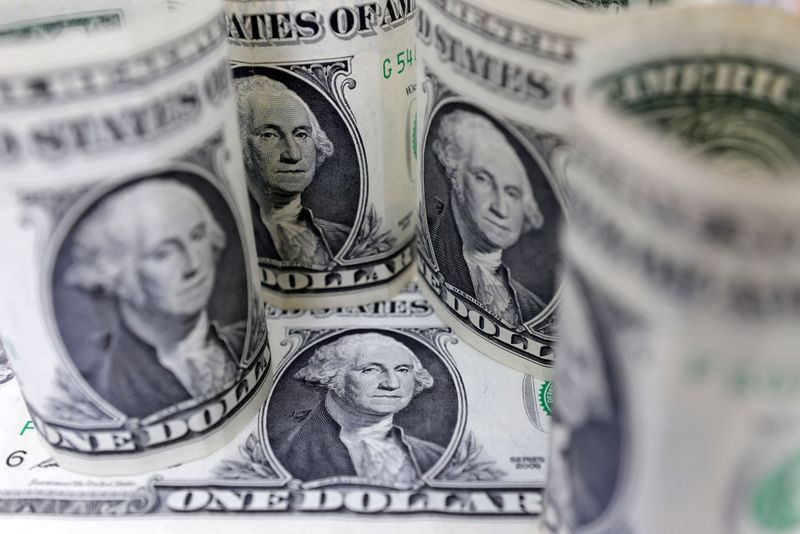By Chibuike Oguh and Harry Robertson
NEW YORK/LONDON (Reuters) -The U.S. dollar rose to a 6-1/2-month high against major peers on Tuesday, while bitcoin pared gains after earlier hitting a record high amid expectations of inflationary import tariffs from Republican President-elect Donald Trump
Bitcoin gained 1.88% to $89,683.00, slightly below a new all-time peak of $89,982. Trump has vowed to make the U.S. "the crypto capital of the planet".
Higher tariffs are expected to push up prices, leaving the Federal Reserve less scope to cut interest rates. The yield on benchmark U.S. 10-year notes rose 13.1 basis points to 4.439%.
"It's still an extension of the post-election moves; the economic calendar has been relatively light although it's picking up later in the week but for now the market is focusing on the implications of a second Trump term, particularly policies that would be positive for the dollar such as potential higher tariffs," said Vassili Serebriakov, an FX strategist at UBS in New York.
The U.S. dollar index , which measures the currency against six peers, rose 0.51% to 105.96 after rising to as high as 106.17 - its highest level since early May.
With Trump's Republican Party looking poised to take control of the House of Representatives, according to Decision Desk HQ, it will hold a slim majority in both houses of Congress, allowing the president-elect to push his agenda of cutting taxes and regulation after he takes office in January.
"There's been a broad move in the dollar that started before the election and it probably got an added boost because it looks like we're moving to a red sweep scenario, which is broadly seen as positive for the dollar," Serebriakov added.
Trump has warned that the euro bloc will "pay a big price" for not buying enough American exports, with cars a particular target. He has threatened China with blanket 60% tariffs.
Since his election last week, the euro has languished at a seven-month trough and the yuan slumped to its lowest in more than three months, with Europe and China both targets of potential Trump tariffs.
The euro is feeling additional pressure from political uncertainty. Germany, the bloc's biggest economy, is set to hold elections on Feb. 23, which will be 11 weeks after the collapse of Chancellor Olaf Scholz's governing coalition.
The euro sank to $1.0596 on Tuesday, the lowest since November 2023, and was last down 0.32% at $1.06215.
Sterling dropped 0.99% to $1.2742 after data showed regular UK wage growth slowed and unemployment rose, with the pound also feeling the heat from the dollar's rally.
Against the Japanese yen, the dollar rose 0.6% to 154.63 yen. The Japanese currency dropped to a three-month low of 154.715 per dollar last week.
The onshore yuan finished the domestic session at 7.2378 per dollar, its lowest close since Aug. 1. The Aussie dollar - which tends to be swayed by the economic outlook for China, Australia's top trading partner - weakened 0.61% versus the greenback to $0.6534.

"There's definitely a herd mentality building up here and sometimes it's nice to find a contrarian approach to it," said Amarjit Sahota, executive director at Klarity FX in San Francisco.
"But other than getting some exhaustion in this (Trump) trade, which has really been carrying now for a little while because it's not just the election cycle, the market has also been pairing back its dovishness on the Federal Reserve."

